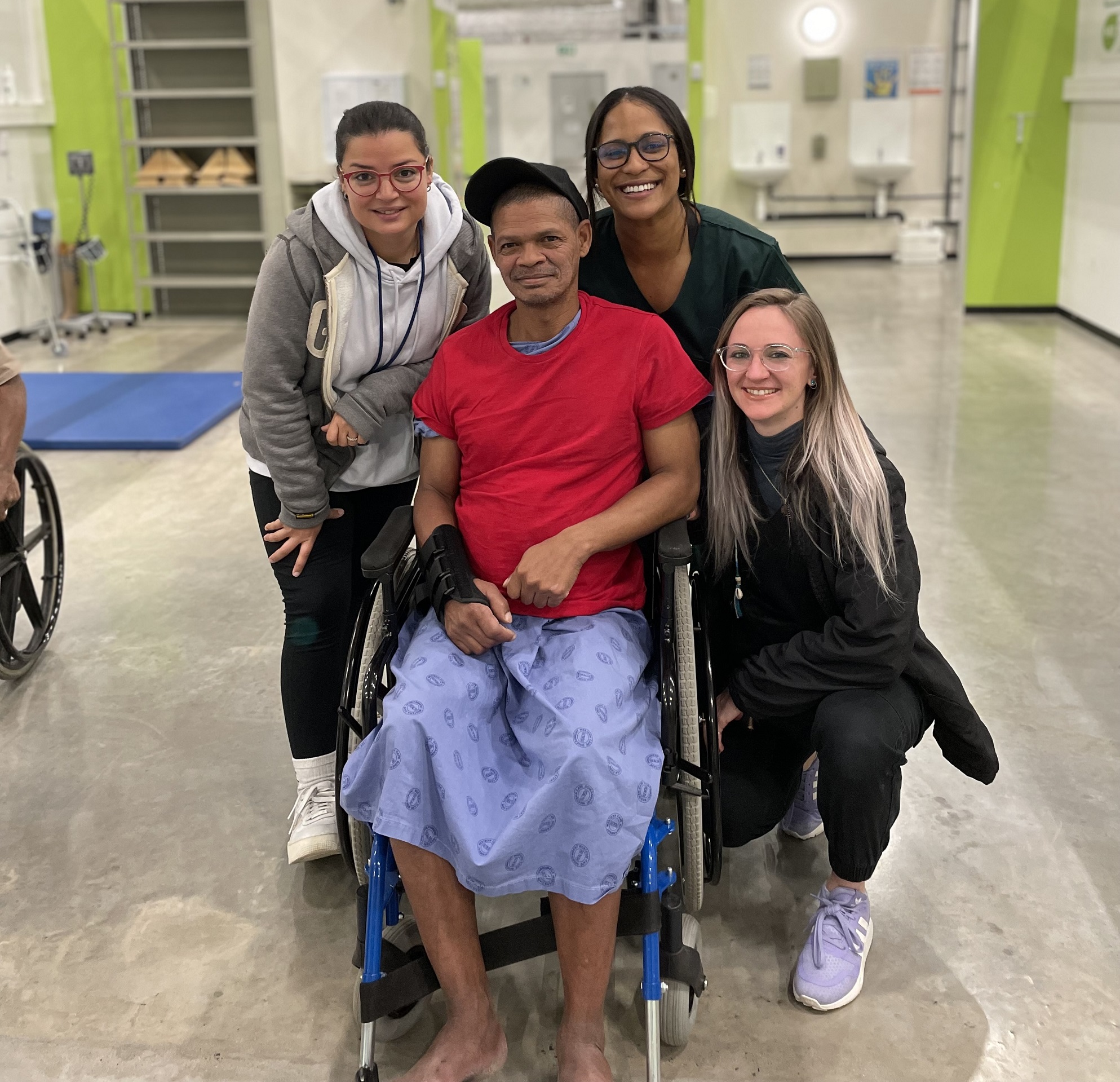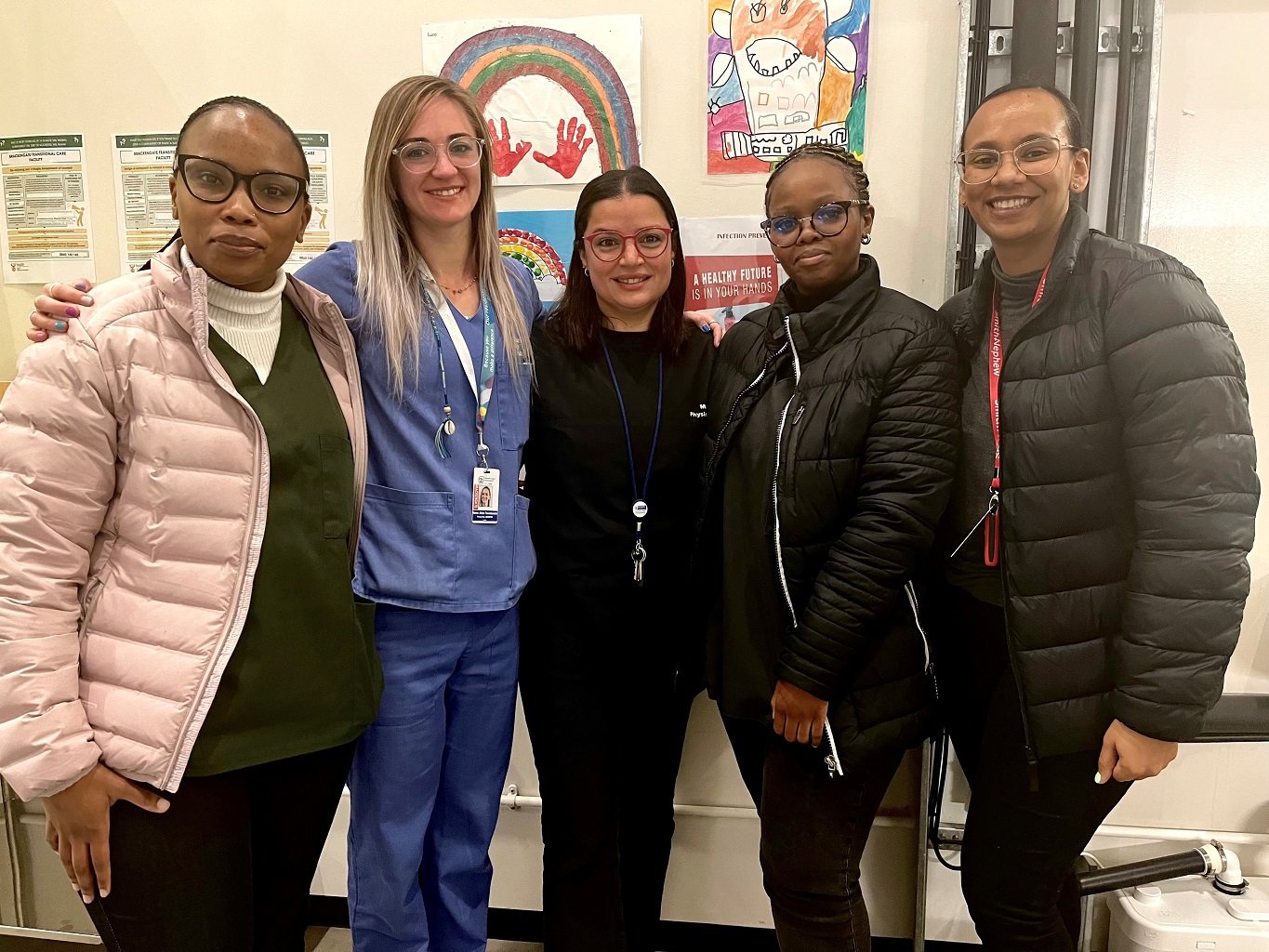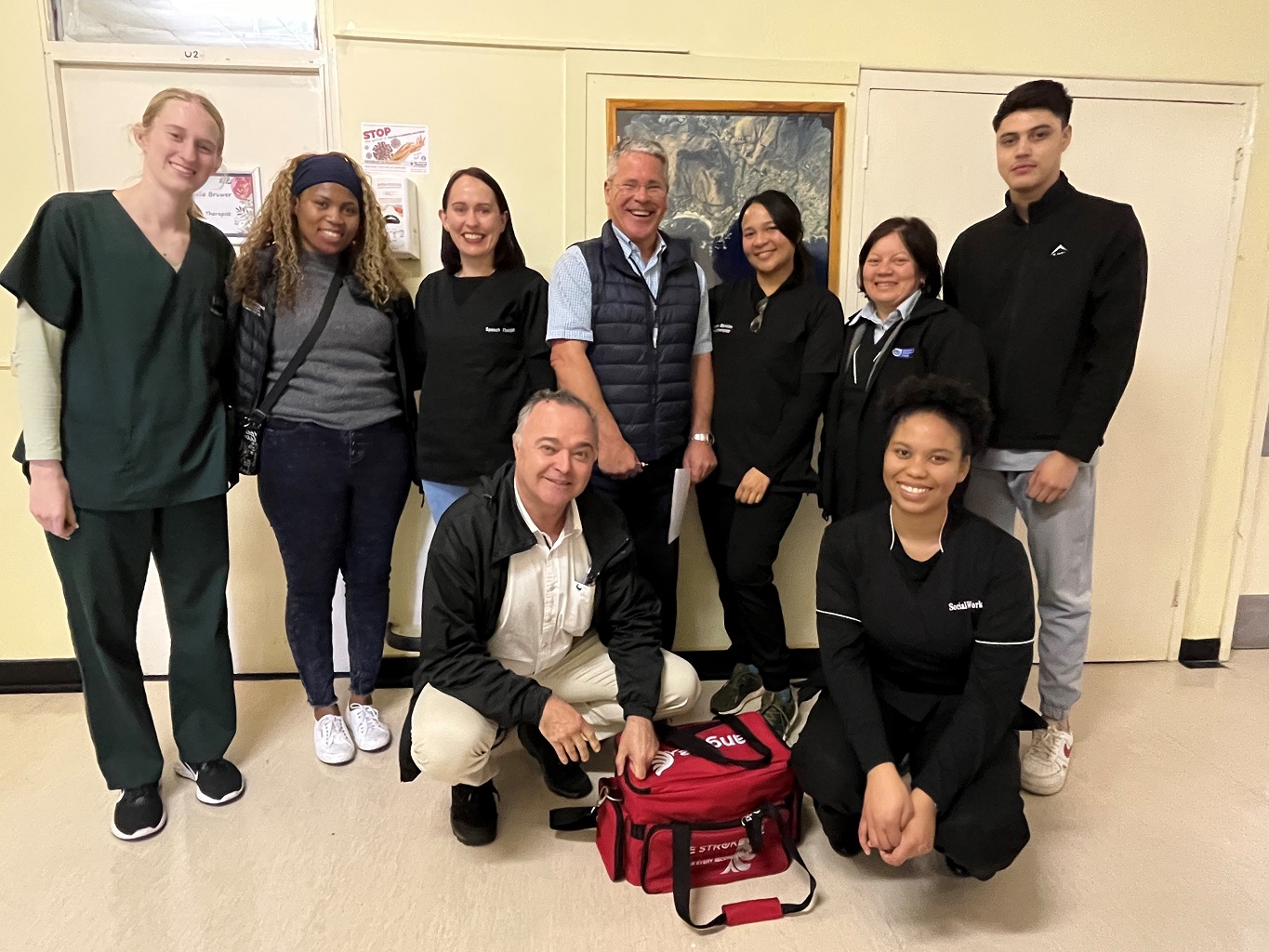
News
Praise for staff as stroke patients find hope and healing
On 5 July 2023 just after 2am, Elsies River resident Clive Fortuin was admitted to his local emergency centre with signs of a stroke.
As we celebrate Heart Awareness Month this September and ahead of Stroke Awareness Week in October, Clive and wife, Charmaine, share their story.
Charmaine recalls that he could not speak at the time of his hospital admission. “We arrived at the Elsies River Day Hospital around 2:20 in the morning and he was later transferred to Tygerberg Hospital before being transferred to Eerste River Hospital. We then found out that he would be transferred to Brackengate Transitional Care Facility.”
Clive, who was 53 years old at the time of his hospitalisation, spent around six weeks in care at the Brackengate Transitional Care Facility where he was rehabilitated to regain his movement and speech. “When we arrived at Brackengate for visiting hours, I could see Clive was doing much, much better. Clive can now do exercises and the leg that could not move, it can move again. He is speaking again as well. He has also been referred to the day hospital so that he can receive further physiotherapy.”
Both Clive and Charmaine have expressed their gratitude to the multi-disciplinary stroke care team at Brackengate and all healthcare workers who cared for him. Charmaine shared: “From the bottom of my heart, I want to thank the healthcare workers who looked after my husband. Thank you for the good work you’ve done and for the good service you gave.”
The hospital team shared that Clive was discharged from hospital earlier this month and was in time to celebrate his 54th birthday at home. “They took really good care of me at the hospital. I am grateful for all of them. The service they provided was really excellent,” said Clive.
Finding hope through stroke care rehabilitation
Rehabilitation is critical for residents who have experienced a stroke. Residents may receive care at district hospitals such as Karl Bremer Hospital for critical care and rehabilitation and could later be referred for a transitional care facility, like Brackengate, if they need further care and are not ready to return home.
Alicia Toumilovitch, speech therapist and audiologist at Brackengate, says a comprehensive approach to care is critical. “Being treated by a multi-disciplinary team is very important. Stroke affects many people differently. For some patients, it may affect all abilities, such as the ability to move, speak and swallow. When he (Clive) came in, he couldn’t speak at all, and he was not able to communicate. After rehabilitation efforts by our entire health team, he was able to speak when he returned home. He was very motivated, and he has a very supportive family which really helped his rehabilitation. We worked together as a team and, in time, he could leave much stronger and much better.”
Brackengate physiotherapist Mariam Parker adds teamwork helps them to get patients back on their feet. “From a physiotherapy aspect, we helped this patient with mobilisation. For me it was important for everyone in our team to be involved. As he had difficulty communicating, speech therapy complimented the work that I do. If the patient can better express themselves, I can better manage their care. I work very closely with an occupational therapist to ensure there is purpose to the movement, like walking to the bathroom and helping him to shower himself again, basically restoring his abilities to do everyday things. We do what we do together for our patients.”
Mariam says not all patients leave the way they want them to, but many leave better and stronger. “It’s very encouraging when our patients leave better than they arrived. At the end, he (Clive) could say a few words and wrote a letter for his wife as he was in hospital at the time of their wedding anniversary. While we are under pressure at times, what helps is when our patients get better and when patients are thankful and their families.”
When stroke patients are admitted to a hospital, they will work with physiotherapists, occupational therapists, nurses, speech therapists and audiologists, dieticians, clinicians and social workers.
Dr Randy Fakier says her team is person-centered and ensures that they understand the client’s goals when they are admitted for care. “I think it’s really important to find out what the patient’s needs are and what their end goals are. We work towards what’s important for them. Whether that is regaining mobility so that they can provide for their family in some way again or communicating after losing their speech is the end goal, it is very important to work with their goals. I will always ask my patients, what are your goals and your needs, how can we help you.”
Anyone can have a stroke: Know the risks and signs
“I want to say it can happen at any age to anyone irrespective of your weight, anyone can get a stroke,” said Brackengate dietician Nokwando Mbambo. Nokwando helps patients to build healthy habits and encourages people of all ages to take care of their health. She encourages people to know the signs of a stroke.
The FAST acronym is best to use to be aware of a possible stroke and you should always seek help immediately.
The Heart and Stroke Foundation uses the following guide:
F – Face dropping: This refers to drooping or numbness on one side of the face versus the other.
A – Arm weakness: An individual may experience arm weakness in one arm, or one arm may be more numb than the other.
S – Speech difficulty: Watch for changes in speech including slurring or the inability to respond properly.
T – Time to seek emergency support: Try to remember when your symptoms began and seek emergency support immediate. Medical help is most important within the first few hours after a stroke.
Other commons signs of stroke include: Sudden confusion, sudden loss of vision, sudden severe headache and sudden dizziness.
How to protect your health
Many stroke care patients are first admitted to Karl Bremer Hospital, which received global gold status for its stroke care initiatives earlier this year. Head of Internal Medicine, Dr De Vries Basson, works with a multi-disciplinary team to rehabilitate his patients. Dr Basson says, “Each member in our district hospital team plays a pivotal role in making sure that stroke patients regain as much neurological, emotional and intellectual function as possible after the stroke so that the patients need the least number of interventions, such as prolonged rehabilitation.”
His team shared healthy living tips for people of all ages:
1. Start healthy habits early on: “Be mindful of your child’s screen time. Try to prevent the couch potato habits. Try to introduce family activities or encourage participation activities at school or in your community such as soccer, cricket or athletics. It is very important to teach our youth how to care for their health,” says Karl Bremer social worker supervisor Ronell Gabriels.
2. Ask questions, know your body: “I think patient education and self-awareness is important. Some patients take medication but may not be taking them every day as prescribed. It’s important to take medication provided by your clinic and ask questions so that you understand why you need to take it. This can improve your health outcomes,” shared Nadeen Ebrahim physiotherapy comm-serve at Karl Bremer Hospital.
3. Cut down on unhealthy habits: “Be aware of diseases of lifestyle and your habits. You need to look at how to prevent diseases by being active, not smoking, not eating lots of processed food, not drinking too much and be aware of smoking. It’s just about making people aware that cutting down on smoking can make a huge difference,” says Karl Bremer dietician Greg Noel.
4. Move and rest: “Exercise is a powerful tool for your mental and physical health. It can reduce your risk of heart disease, high blood pressure, osteoporosis, diabetes, and obesity; as well as reduce your risk of breast, colorectal, and uterine cancer. The list goes on. Try to find something that makes you feel good. Ensure you also get enough rest and at least 7-8 hours of quality sleeps,” adds Dr De Vries Basson.
Western Cape Government Health offers in-patient support (a patient who stays in hospital while receiving treatment) and out-patient support (a patient who receives treatment without staying overnight). In addition, healthcare workers will create a rehabilitation plan to help you adapt. Overall, having a stroke can be scary and help is available to you and your loved ones who may need support.
Remember to seek help right away! If you show signs or symptoms of having a stroke or visit your nearest healthcare facility.







